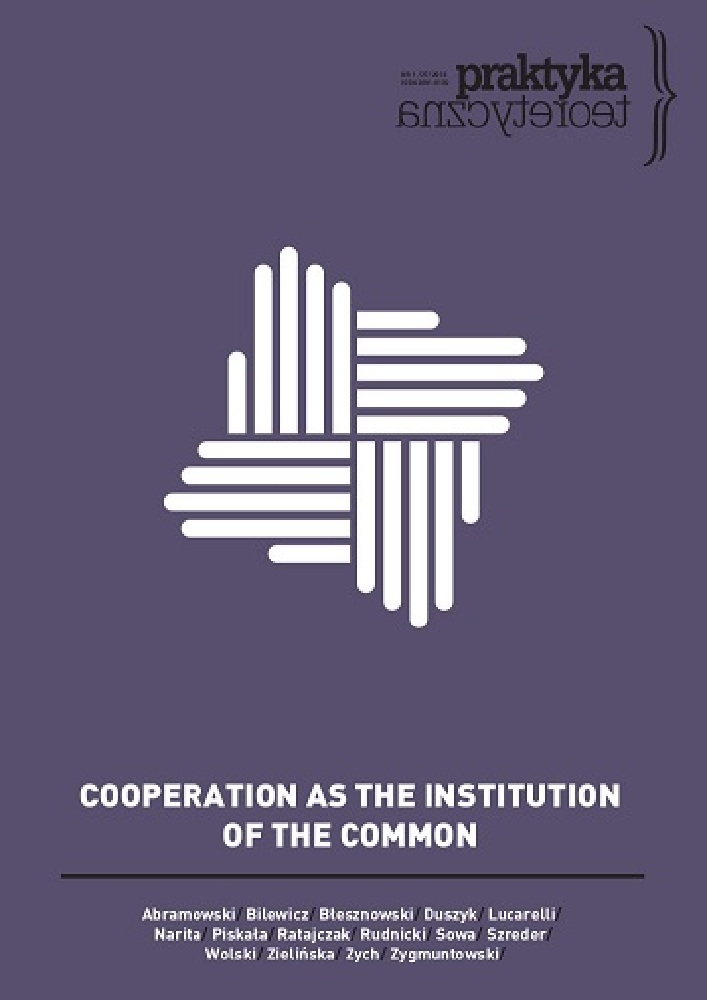Abstract
"Stateless socialism‖" is the fourth chapter of Edward Abramowski‘s book Socialism and State. A Contribution to the Critique of Contemporary Socialism. Abramowski, a Polish political philosopher and social theorist, was also one of the founders of the cooperative movement in Poland. Written at the turn of 1903 and 1904 and published in 1904 (Polish Society of Publishers, Lviv) under the alias ―M. A. Czajkowski‖, Socialism and State is one of Abramowski‘s most important works, and is devoted to the philosophical justifications of socialist politics, the subversive character of social facts, and the doctrine of stateless socialism, the realisation of which was, according to Abramowski, the cooperative movement. In opposition to both classical Marxism and the social-democratic trend, which found in the state a tool by which the workers‘ movement would free itself from the chains of capitalism, by taking over, democratizing, and at the same time expanding state institutions, Abramowski proposes a vision of a grassroots revolution of specialised associations. Their ideology does not constitute a political doctrine, but is political practice itself, the domain of the common that allows the masses to create an autonomous subjective experience. Thus, the philosopher presents his concept of class struggle, grasped as a creative element of differentiation of forms of socialisation. This understanding also allows him to define class not as a substantial feature of a political subject, but as a kind of condition or action. He perceives the revolution as a transformation of the subject position in relation to the socio-economic conditions that define it, an ethical change that opens new possibilities for community life in the heart of the ancien regime.License
“Theoretical Practice” seeks to put into practice the idea of open access to knowledge and broadening the domain of the commons. It serves the development of science, thinking and critical reflection. The journal is published in open-access mode under the CC-BY-NC-SA 4.0 license (detail available here: http://creativecommons.org/licenses/by-nc-sa/4.0/). Articles published in the journal may be freely distributed, stored, printed and utilized for academic and teaching purposes without restrictions.
They should not be, however, used for any commercial purposes or be reconstructed into derivative creations. Access to the journal may not be limited or offered for a fee by any third party.
Prospective authors are obliged to fill in, sign and send back the publishing contract compliant with the CC licencing. [PL.pdf, PL.doc, EN.pdf,EN.doc].
According to this contract, authors grant the journal a non-exclusive right to publish their work under the creative commons license (CC-BY-NC-SA 4.0) without any financial obligation on both sides of the contract.
Before submission authors should make sure that derivative materials they use are not protected by copyright preventing their non-commercial publication. Authors are responsible for any respective copyright violations.
